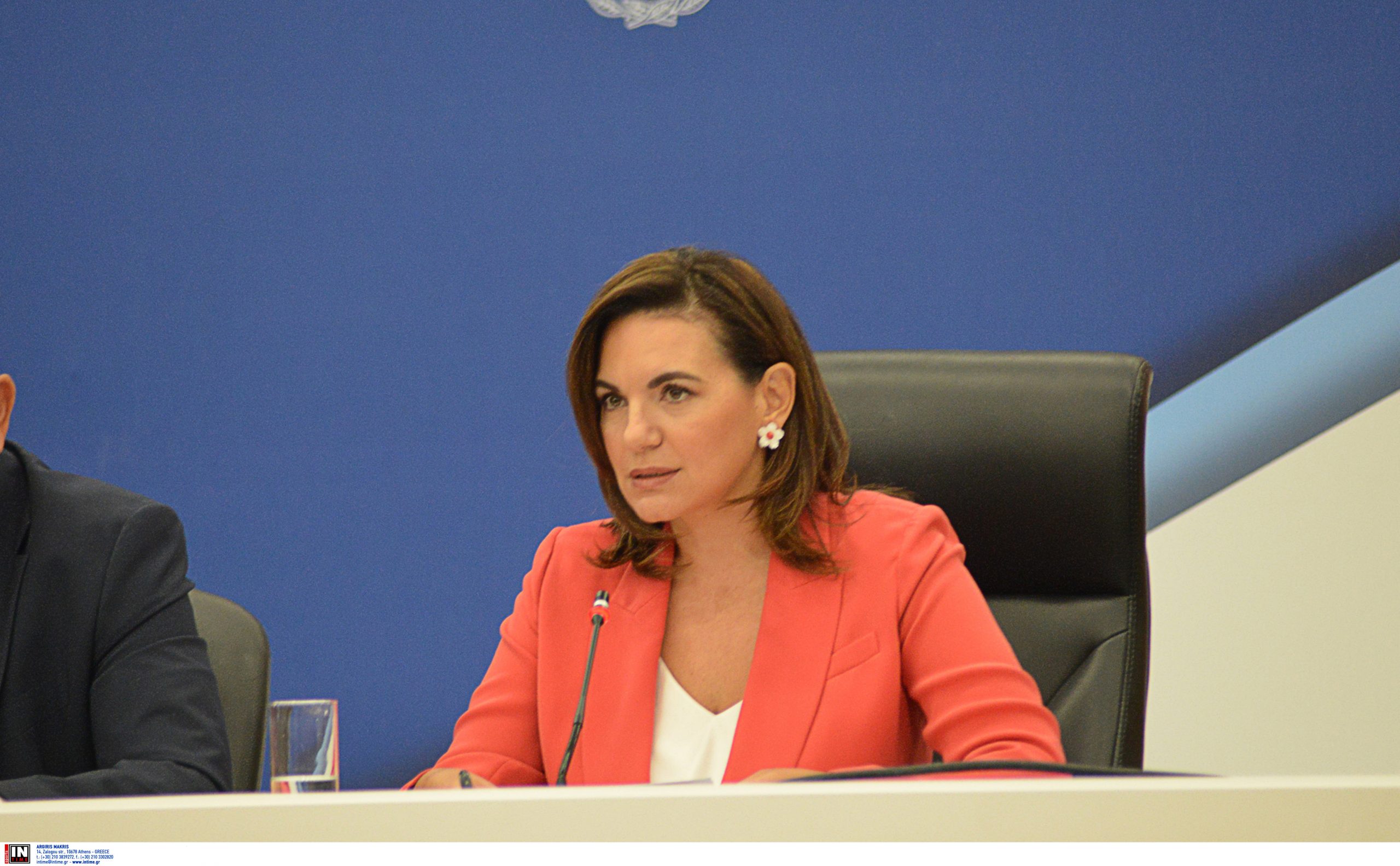
Tourism Minister Olga Kefalogianni introduced the new cruise passenger levy as well as the framework for regulating short-term rentals, such as Airbnb, on Monday.
Specifically, the minister announced a cruise passenger levy of 20 euros per person disembarking at the ports of Mykonos and Santorini, and 5 euros at other Greek ports, applicable from June 1 to Sept. 30.
The fee will be reduced by 40% in April, May, and Oct, dropping to 12 and 3 euros respectively, and by 80% from Nov. to March, lowering the charges to 4 and 1 euros.
The new cruise passenger levy is expected to generate annual revenue of 50 million euros. One-third of the amount will be distributed to the municipalities where passengers disembark, one-third will be allocated to the ministry of shipping for essential port infrastructure projects, and the remaining third will go to the ministry of tourism, to improve tourism infrastructure and support the country’s tourism industry.
A similar approach will be applied to the “resilience levy” that is imposed on hotels.
Regarding the climate resilience levy, it will see an increase from April to Oct. for hotels, rental rooms, and short-term rental properties.
The reduced fee will now extend by one month, including March, making it applicable for five months instead of four.
The revenue from this levy will be used for disaster prevention and recovery expenses, as well as improvements to infrastructure to support the country’s tourism sector.
For short-term rentals, the resilience fee will rise from 0.50 euros during the winter months to 2 euros, and from 1.50 euros in the summer months (April to Oct.) to 8 euros.
What is more, in terms of market regulation, new short-term rentals will be prohibited in the center of Athens, specifically in the 1st, 2nd, and 3rd municipal districts effective from January 1, 2025, for one year, with the possibility of extension.
The minister further emphasized that the Ministry of Tourism is developing a regulatory framework for short-term rentals, with aim of introducing minimum operational and safety standards, along with a system for conducting inspections to ensure compliance.
Source: tovima.com
Latest News

Hotel Foreclosures Continue to Plague Greece’s Islands
A surge in hotel foreclosures across Greece’s islands threatens small tourism businesses, despite booming visitor numbers and record-breaking travel in 2024.

Athens Launches Task Force to Safeguard Historic City Center
The new municipal unit will ensure compliance to zoning laws, curb noise, and address tourist rental issues starting from the Plaka district.

WTTC: Travel & Tourism to Create 4.5M New Jobs in EU by 2035
This year, international visitor spending is set to reach 573 billion euros, up by more than 11% year-on-year

IMF: US Tariffs Shake Global Economy, Outlook Downbeat
IMF slashes global growth forecast to 2.8% as U.S. tariffs create uncertainty and ‘negative supply shock

First Step Towards New Audiovisual Industry Hub in Drama
The project is set to contribute to the further development of Greece’s film industry and establish Drama as an audiovisual hub in the region

Airbnb Greece – Initial CoS Ruling Deems Tax Circular Unlawful
The case reached the Council of State following annulment applications filed by the Panhellenic Federation of Property Owners (POMIDA)

Mitsotakis Unveils €1 Billion Plan for Housing, Pensioners, Public investments
Greek Prime Minister Kyriakos Mitsotakis has announced a new set of economic support measures, worth 1 billion euros, aiming to provide financial relief to citizens.

Alter Ego Ventures Invests in Pioneering Gaming Company ‘Couch Heroes’
Alter Ego Ventures' participation in the share capital of Couch Heroes marks yet another investment by the Alter Ego Media Group in innovative companies with a focus on technology.

Corruption Still Plagues Greece’s Driving Tests
While traffic accidents continue to claim lives on Greek roads daily, irregularities and under-the-table dealings in the training and testing of new drivers remain disturbingly widespread

Pope Francis Died of Stroke and Heart Failure Vatican Confirms
As news of the official cause of death spread, tributes poured in from across the globe. The 1.4 billion-member Catholic Church is united in grief, remembering a pope who championed inclusion, justice, and compassion









































 Αριθμός Πιστοποίησης
Αριθμός Πιστοποίησης